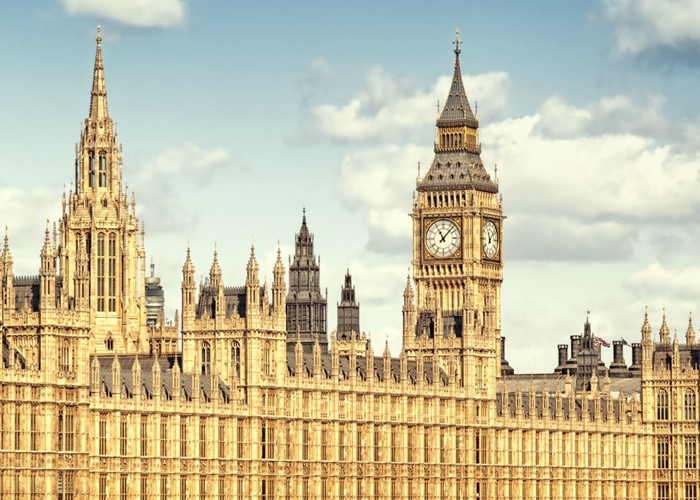Autumn Statement 2013: what to expect and what it means for you

With the Autumn Statement taking place this week, we look at what's likely to be announced and what it means for you and your money.
On Thursday George Osborne, the Chancellor of the Exchequer, will deliver his Autumn Statement. Formerly called the Pre-Budget Report, it’s a chance for the Chancellor to update Parliament – and the general public – on the Government’s spending and taxation plans.
While historically the Autumn Statement wasn't designed for policy announcements, in recent years it has become more and more like a mini-Budget.
And as with the Budget, plenty of the content of the speech has already been leaked. Let’s take a look at what’s likely to feature and what it means for your money.
An ISA cap
There has been talk of the Treasury holding discussions about the possibility of capping the total amount we are allowed to save in ISAs, perhaps at around £100,000.
The great thing about ISAs is that you get to keep every penny of interest you earn. They are absolutely tax free and were designed to encourage us to save. But now those at the top are concerned that some people are saving too much, and doing rather well out of it.
Such a cap would be yet another blow for savers, who have already had to put up with disastrous savings rates over the last couple of years. As the British Banking Association has said, a cap would “raise doubts on the stability of the regime going forward and discourage saving, as there would be a perception that the cap would be reduced over time”.
However there is also talk that peer-to-peer investments may be allowed to be included in ISAs for the first time.
Pension lump sum
At the moment, when you come to retire you can take up to 25% of your pension in a tax-free lump sum. There has been some talk that this could be cut to 20% in the Autumn Statement.
The big debate is not just whether a reduced cap should be introduced, but also when it would be introduced. It it’s immediate, it could cause serious problems for those pensions savers who have planned their finances based on receiving a larger sum at the outset of their retirement.
Take control of your pension saving with a SIPP
Married couples tax break
The Prime Minister has already announced that we will have details of this one in the Autumn Statement. At the moment if one member of a marriage doesn't make the most of their personal tax allowance (the amount you earn before you start paying income tax) then it's gone for good.
However, the Government wants to allow a certain amount of your personal tax allowance – perhaps around £1,000 – to be transferrable between married couples and civil partners.
I'm not a huge fan of this particular policy, as I explained earlier this year in Why the Government is right to dump the married couples tax break when the Government said it wouldn't be part of the Budget.
Personal tax allowance
Another change involving the personal tax allowance. The threshold is set to rise from £9,440 to £10,000 in April anyway, but there has been talk of bumping this up further to £10,500, to bring it in line with the age-related personal allowance.
It’s a change that would benefit anyone that pays income tax and could be worth around £100 to base rate taxpayers.
Capital Gains Tax on property
Don’t worry, this won’t affect most of us. The idea is that non-UK residents who own property here will be forced to pay Capital Gains Tax when they sell up.
It’s been seen as a way to cool down the housing market in London, where properties are regularly snapped up by wealthy foreigners, pushing prices even further upwards. The Government has introduced a 7% Stamp Duty tax rate for properties over £2 million as well as a tax on homes worth more than £2 million but contained within offshore “envelopes”. Whether either of these changes has made any impact thus far is open to debate.
Looking to move or remortage? Use the lovemoney.com mortgage centre to compare deals
Child Trust Funds and Junior ISAs
We are currently in the ludicrous situation where parents with savings for their children in a Child Trust Fund are unable to move that cash over to a Junior ISA. Earlier this year the Government launched a consultation to look at whether such transfers should be allowed and how to handle them.
There is talk the Autumn Statement will see the Government finally see sense and give the green light to transfers following a consultation.
Energy bills
The Government has already announced that it will loosen the ‘green’ obligations faced by energy providers, subject to approval, and those providers have promised to pass on any benefits to the likes of you and me.
Read more in Energy companies to reduce bills after Government says it will cut 'green' obligations.
So what do you expect to see in the Autumn Statement? And what would you like to hear George Osborne say? Let us know your thoughts in the comments box below.
Compare energy deals in your area with lovemoney.com
More on politics and finance:
Energy companies to reduce bills after Government says it will cut 'green' obligations
£68 billion interest lost due to quantitative easing and low interest rates
Should reckless bankers be jailed?
Comments
Be the first to comment
Do you want to comment on this article? You need to be signed in for this feature